"It's the first week in January, and I've got great plans... There are lots of things to see."
—Annie Dillard
I went out today for a walk. A welcome walk for the year to come, a closing walk for the year gone. A jaunt uphill and down. I set out on the South Downs in southern England. Rolling mounds of chalk and flint nudge rivers and human settlement among their curves.
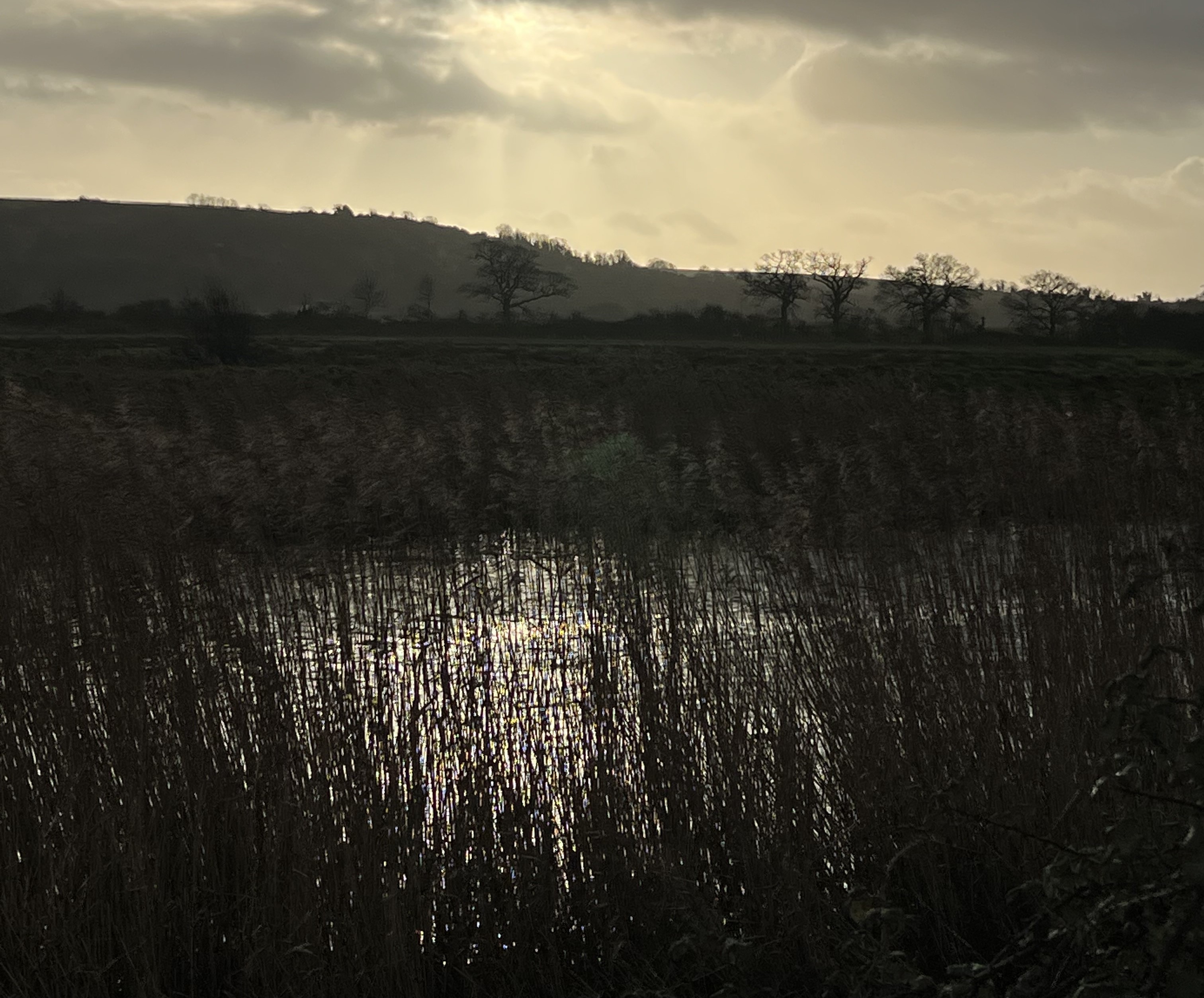 Photograph by Ellen Vrana.
Photograph by Ellen Vrana.The sun was low-slung, the river was high and hungry, and the mucking earth held my heel as I stepped. The weight of memory, perhaps?
I drown in the drumming ploughland,
I drag heel after heel from the swallowing of the earth's mouth.
From "Hawk in the Rain"
This line: "swallowing of the earth's mouth," from one of Ted Hughes's first poems, immediately drew me into his work. Then I learned he had a crow avatar, an accomplice. Me too, Ted.

The earth down in Sussex is scooped into mounds and depressions, giant punchbowls of chalky earth that once housed inhabitants of the Iron Age. We just borrow the land, don't we? It makes a lot of things futile when you reckon how broad the expanse of time is. In the future, will they remember us? Will memory still exist? I hope it does. A collective burden we carry as part of some social contract. That we will remember the past and do better.
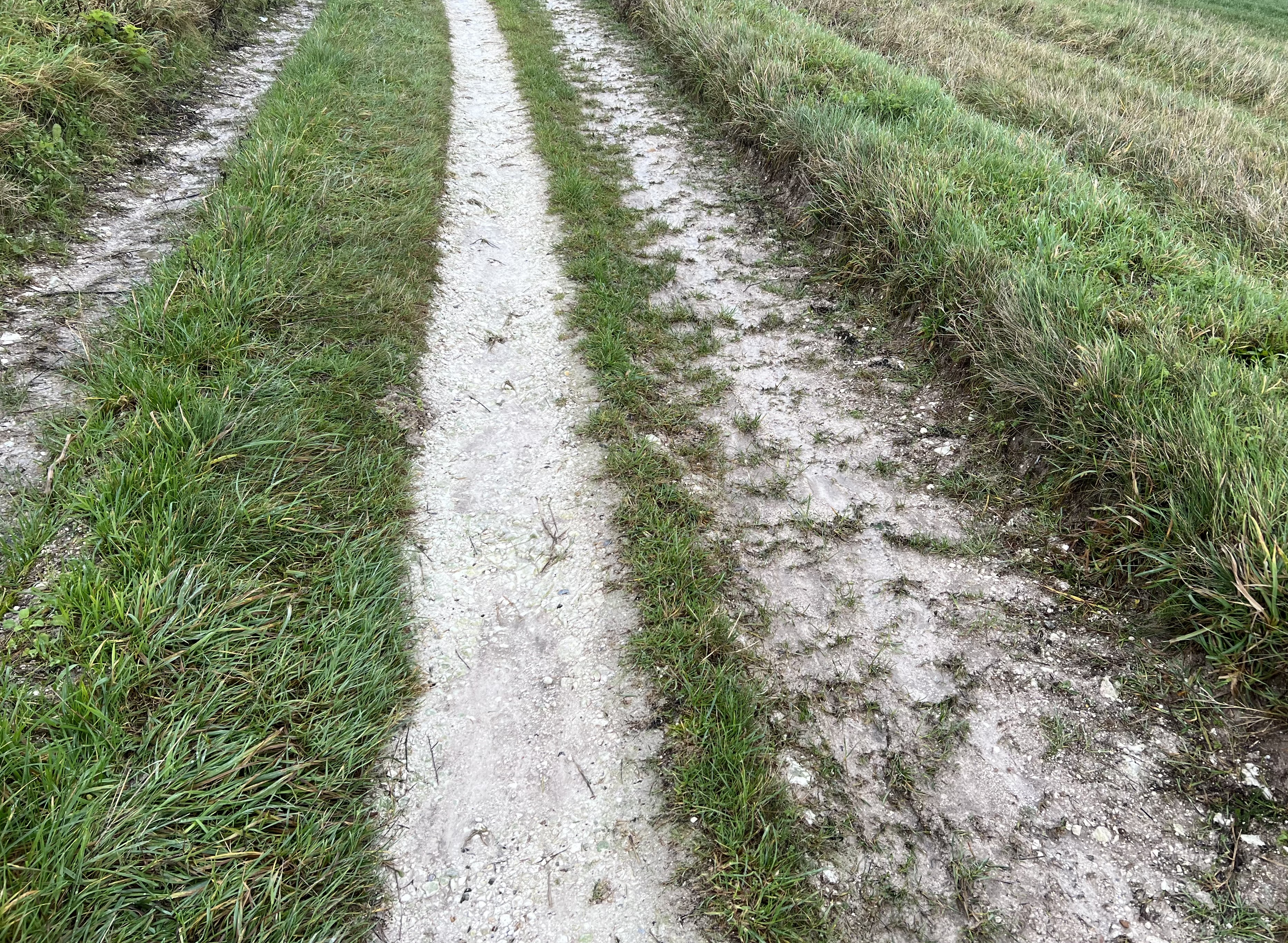 Photograph by Ellen Vrana.
Photograph by Ellen Vrana."We may say that the past is already dead," advises Buddhist leader Thích Nhất Hạnh in his gentle guide on how to change the past by embracing the present, "But ultimately, the truth is deeper than that."
The past is still here in the form of the present. We may think that there isn't anything we can do about the past anymore, but there is.
Perhaps we have done negative things in the past that we regret. It's a mistake to think that it is no longer possible to change the situation, that it is impossible to correct the past. We can correct the past. The past is here, and if we get deeply in touch with the present, we can touch the past as well as transform it.From Thích Nhất Hạnh's You Are Here
As I ascend, scattered copses edge the fields like island vestiges of a much grander forest that fueled the Iron-Age fires.
Is this first week of January the time when memory meets hope? When the past meets the future? Do they battle? Do they coexist? This week is a pause between the two. These armed forces of what has been and what might be. Maybe this week is the present. Exhausted like etherized patients with slumped backs and restless legs.
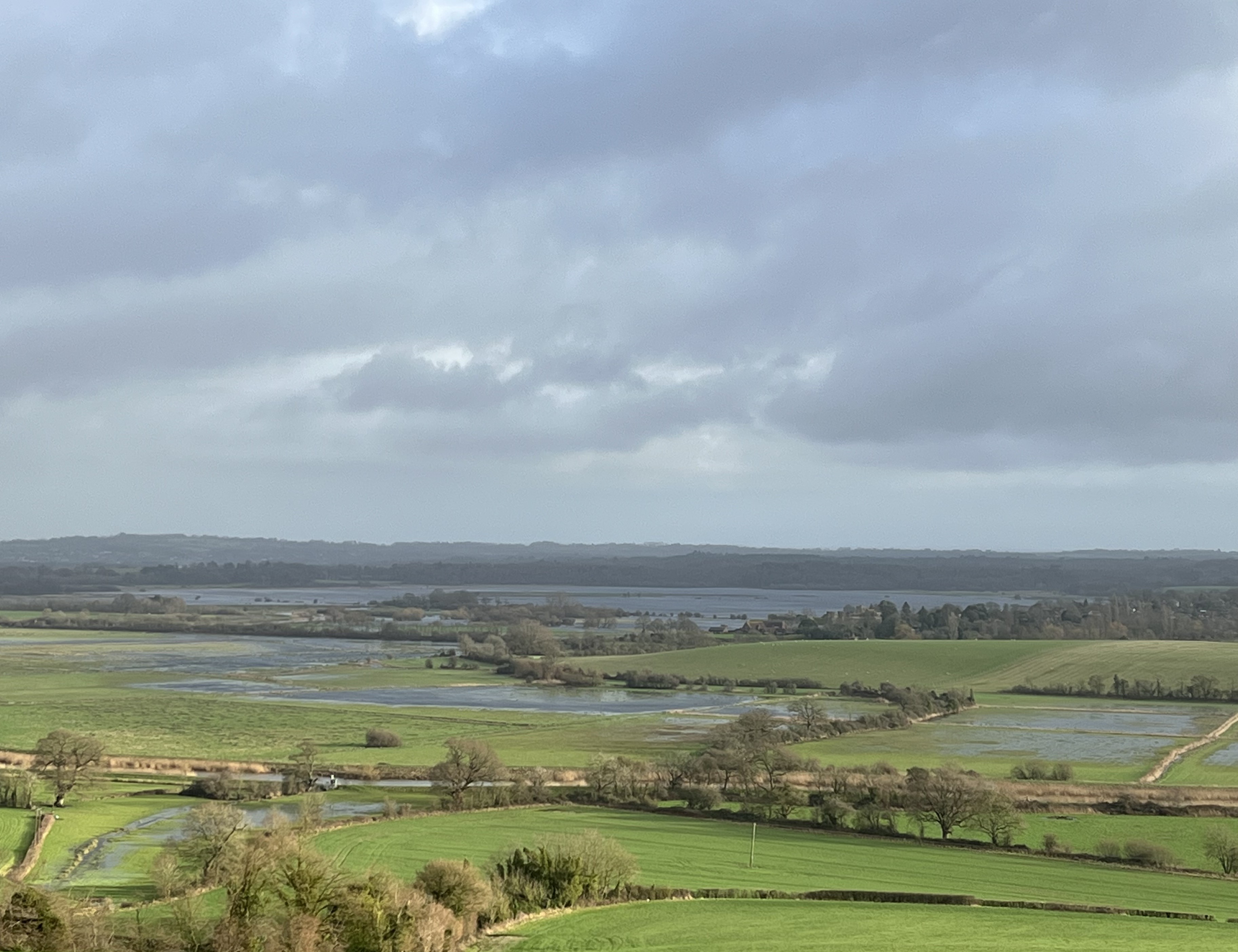 Photograph by Ellen Vrana.
Photograph by Ellen Vrana."I am here; I really am." Annie Dillard's earthy sojourn in the middle of Virginia, taken so many decades ago now, is captured in a book that changed how we view and arguably need nature writing. Dillard rewrote the rules on nature writing. As a place to be rather than see—a place to exist rather than visit.
I love this section where she identifies the unifying consciousness of self-awareness.
I am sitting under a sycamore by Tinker Creek. I am really here, alive on the intricate earth under the trees. But under me, directly under the weight of my body on the grass, are other creatures just as real, for whom also this moment, this tree, is it.
From Annie Dillard's Pilgrim at Tinker Creek
For this hike, today I have my equipment. Lots of it. Poles and bags and weather-proof synthetic thingys untouched (hoarded?) for a decade since my last great hike up and down America. Virginia clay was still on my boots; dead Vermont flies in my hat and the scar of Georgia's spring sun on my earlobes. And the weight of the pack - about 30 lbs when full - on my clenched tendons.
Speaking of tendons, they are tight today. Tight and noisy. These things hold everything together like carabiners and elastics; I must listen to their complaints. I did all my old warm-ups and then repeated them. They never used to be so fussy.
I read somewhere that our cells regenerate every seven years. The me that hiked these chalky curves did not hike the Appalachian Trail ten years ago.
And yet, of course, it is the same me. I'm behind these eyes, no? Taking everything in. The muscles remember. What if I met my old self on these trails? Would I know her? Or she me? Would we show tenderness towards one another? Knowledge and understanding?
One of my favorite poems, which you must be sick of hearing, is Wislawa Szymborska's "Teenager." A simple premise: what if we met our younger selves?
Me - a teenager?
If she suddenly stood here, now, before me,
would I need to treat her as near and dear,
although she's a stranger to me and distant?
Shed a tear, kiss her brow
for the simple reason
that we share a birthdate?
So many dissimilarities between us
that only the bones are likely still the same,
the cranial vault, the eye sockets
[...]
Relatives and friends still link us; it is true,
but in her world, nearly all are living,
while in mind, almost no one survives
from that shared circle.
We differ so profoundly,
talk and think about completely different things,
She knows next to nothing -
but with a doggedness deserving better causes.
I know much more -
but not for sure.From Wislawa Szymborska's "Teenager"
Szymborska wisely concludes it would be a mutual misunderstanding. If the past makes no sense, is that why we throw ourselves into the future with abandon? All this is who we will be and what we will do. An endemic needs to escape today, whatever it might be, to something better. Hope. That is what hope has come to mean, the promise to lose belly fat in thirty days. Or learn near-fluent French in twenty.
Oh, the people I will someday be! But not yet.
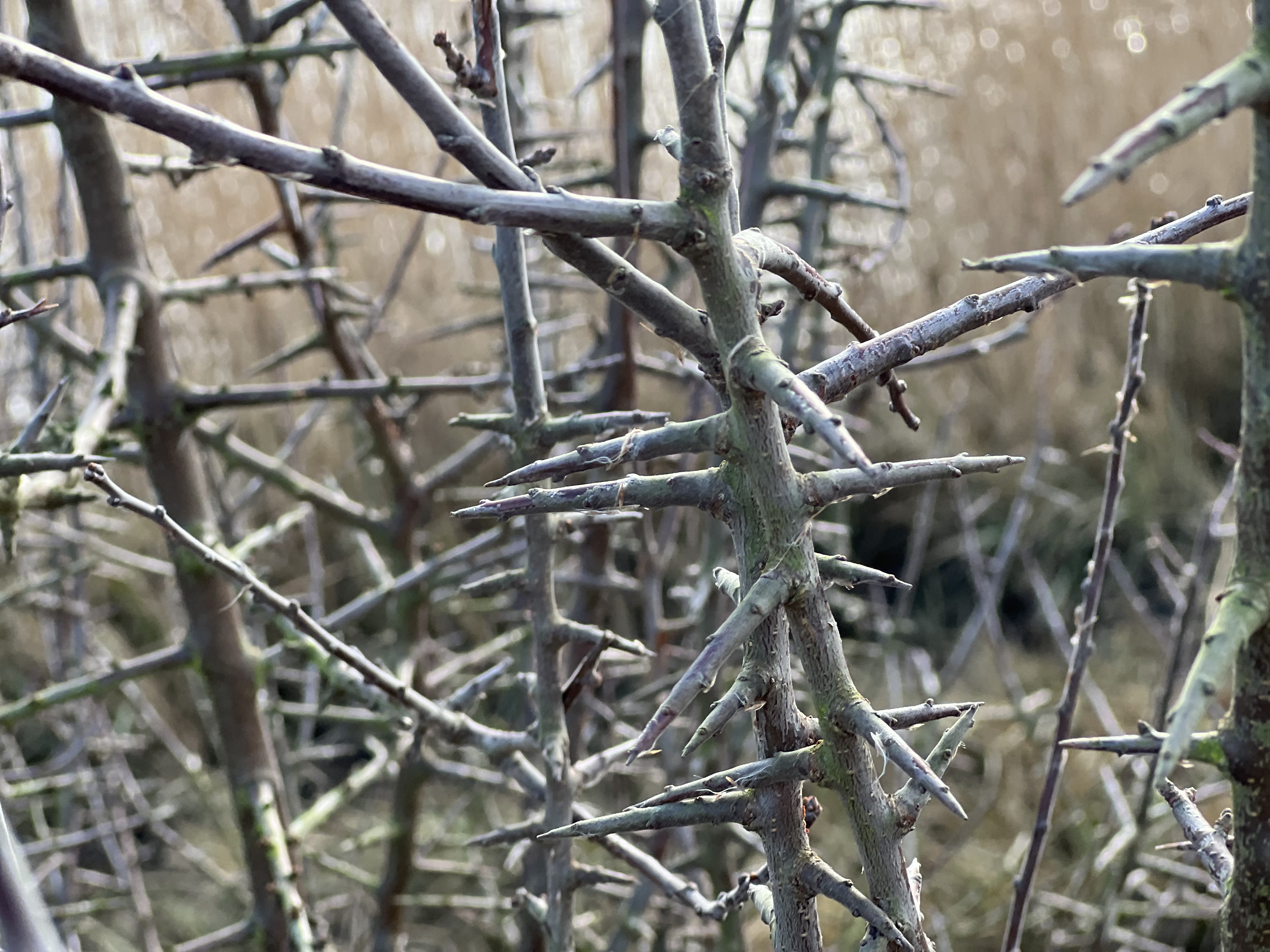 Photograph by Ellen Vrana.
Photograph by Ellen Vrana.Today I'm enjoying flora and fauna of January. The cold-collapsed bracken. The earliest tufts of cow parsley and auricula sniff the air but hug the ground. Blackthorn's denuded branches and the bramble laces blowing in the wind. I sought a fungus called wood ear but couldn't find it. It is a splendid, velvet, jelly-like substance of deep mauve that looks like it was applied to the wood by a bakery tool. Wood ear, which does resemble an ear lobe, is entirely edible and has the texture of octopus.
After a few, short scrambles, I chanced upon some high-ground sheep in the middle of lunch. Sheep are born for mountain terrain; they run uphill when they are afraid. I always thought I loved sheep, but I love the places (New Zealand, Scotland, Bolivia) that sheep love.
Do I run uphill when I'm afraid? I do today.
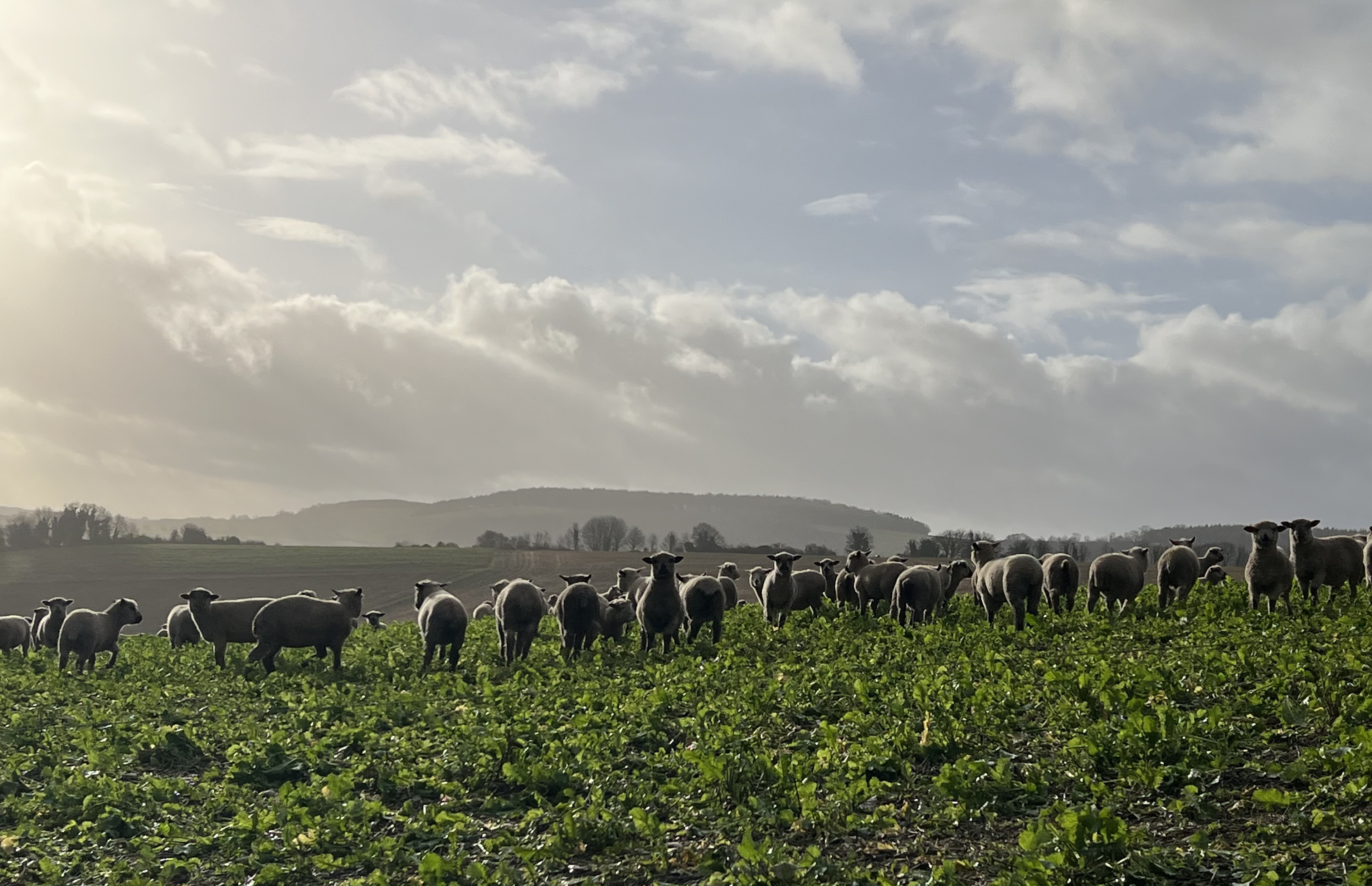 Photograph by Ellen Vrana.
Photograph by Ellen Vrana.Sheep have a threshold of trust. Do not let the cherubic visage fool you; they are sharp. They will wait for you to get extremely close, and then one - and I cannot figure out if it is the leader or simply the one with the sharpest nerves - turns away and moves uphill. Another follows. Then another. Pretty soon, sheep bums waggle away as they scamper to safety.
Sheep have always run away from me, except once. My husband and I were in New Zealand and chanced upon some sheep afar in a field. As soon as they saw us, they ran toward us like kids getting out of school. It was manic. It was delightful. It was everything. It was punctured by the realization that we were standing next to a food bin, and they expected us to deliver. We went from feeling loved to feeling used, to feeling the cold slap of sheep indifference so fast I felt dizzy.
Today I watched the cute faces turn into waddling bums and repeated Dillard's mantra: You are here; you are truly here.
How do we push our own threshold of trust? How do we let go of hope and memory and sit hung-empty in the present? "You don't run down the present," Dillard concludes wisely, "you wait for it empty-handed."
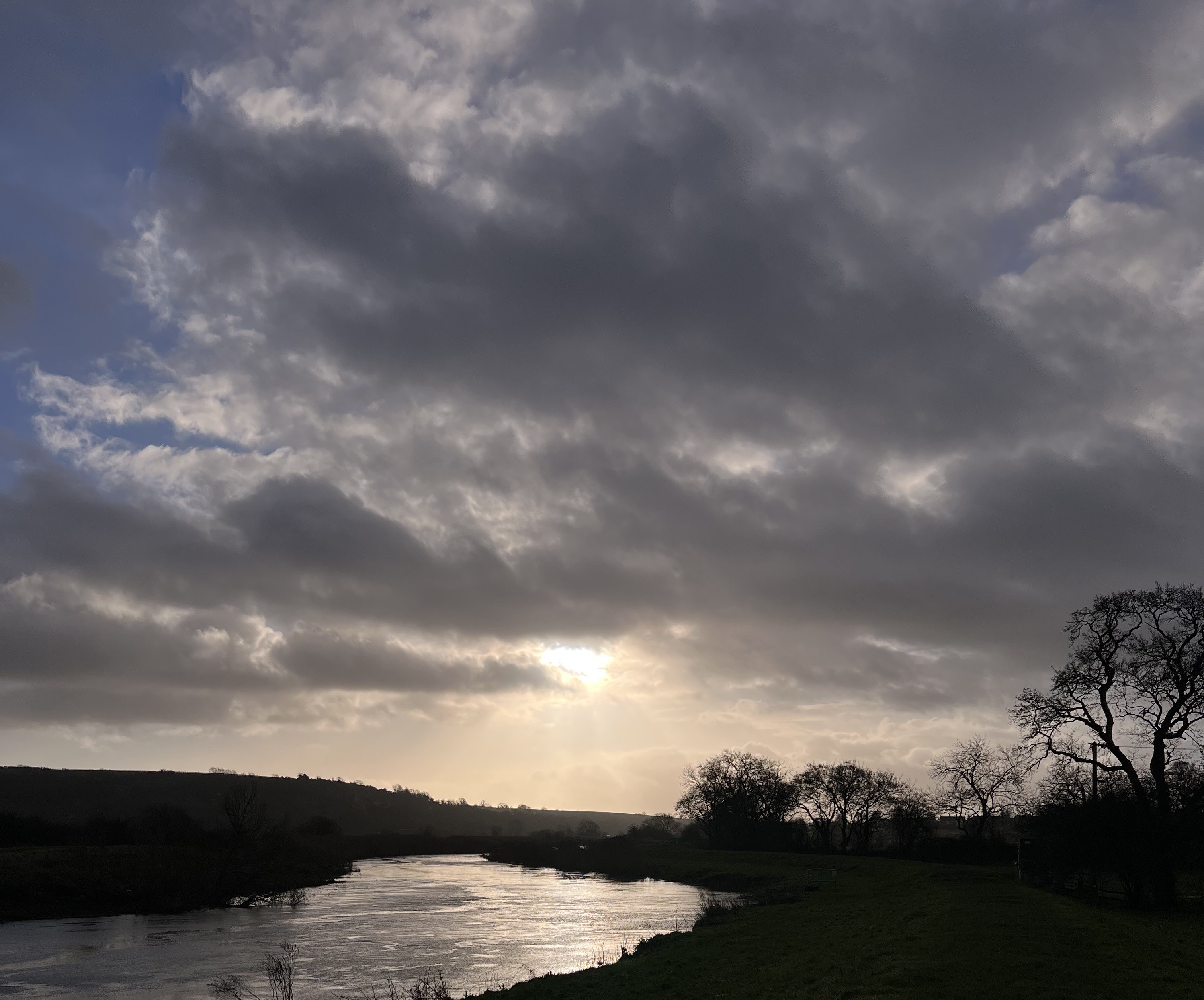 Photograph by Ellen Vrana.
Photograph by Ellen Vrana.If Dillard is right, the present will come to us. And if Thích Nhất Hạnh is also correct that the past will also visit us when we sit still, no wonder, so many of us want to escape the interminable present.
And yet, here we are. Here we all are. Part of some continuum that scoops us up into its heaving bosom and shows us moments of absolute, overwhelming perfection.
I waited long enough, and the sheep returned.

